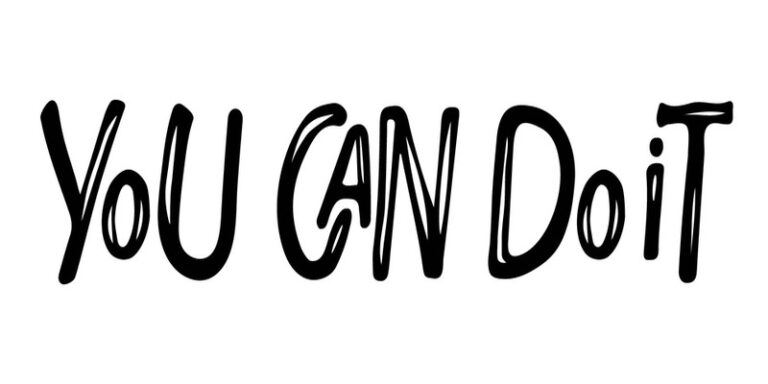Have you ever found yourself in a conversation where the only phrase you seem to say is “I agree”? We’ve all been there! When learning English, it’s common to rely on familiar phrases, especially when you’re unsure of alternatives. But here’s the thing: English, like every language, is rich in expression. Limiting yourself to saying “I agree” repeatedly can make conversations feel dull and uninspired, not to mention it can limit your ability to express nuances in your thoughts.
In this blog post, we’re going to explore why you should avoid overusing “I agree” and offer you a variety of other phrases and expressions that can help you sound more natural, engage more deeply in conversations, and boost your confidence. Whether you’re agreeing wholeheartedly, partially, or with a bit of hesitation, there are countless ways to convey your agreement. So let’s get into it!
Why “I Agree” Isn’t Always Enough
Saying “I agree” works fine in many situations, but language is about more than just the literal meaning of words. It’s about conveying emotions, expressing subtle nuances, and engaging others in conversation. Here are some reasons to move beyond just saying “I agree”:
- Monotony: Repeating the same phrase can make conversations dull. Language is dynamic, and using varied expressions will keep conversations lively and interesting.
- Limited Engagement: Simply saying “I agree” doesn’t leave much room for further discussion. It can feel like the end of a conversation rather than a natural continuation.
- Lack of Nuance: “I agree” suggests complete agreement, but often, we agree with parts of something or feel hesitant about certain aspects. Having other phrases in your vocabulary allows you to be more precise in your communication.
- Missed Opportunities for Connection: When you vary your responses, you show that you are actively listening and thinking critically about the conversation. This can make your interactions more meaningful and engaging.
Now that we’ve covered why it’s beneficial to expand your vocabulary, let’s dive into some alternative ways to express agreement in English.
Synonyms for “I Agree” (With Enthusiasm!)
If you’re excited about what someone is saying and you want to express wholehearted agreement, you can use one of these enthusiastic alternatives:
- Absolutely!
This is a strong and direct way to show that you agree completely. For example:
- “We should all work towards being more eco-friendly.”
- “Absolutely! It’s so important for the planet.”
- Exactly!
Use this to emphasize that the other person has captured your thoughts perfectly.
- “I think we should prioritize quality over quantity.”
- “Exactly! That’s the way to go.”
- You’re absolutely right!
This phrase shows that you fully agree and supports the other person’s point of view.
- “I believe communication is key in a relationship.”
- “You’re absolutely right!”
- Couldn’t agree more!
This phrase is powerful and expresses complete alignment with someone’s opinion.
- “Education is crucial for personal growth.”
- “I couldn’t agree more!”
- That’s so true!
This is a casual and conversational way to agree with someone’s statement.
- “It’s hard to stay motivated all the time.”
- “That’s so true!”
Agreeing with Reservations (Partial Agreement)
Sometimes, you may agree with a part of what someone is saying but not entirely. In those cases, you’ll need more nuanced phrases:
- I see your point, but…
This is a polite way to acknowledge someone’s opinion while also offering a different perspective.
- “I think working late shows dedication.”
- “I see your point, but it’s also important to maintain work-life balance.”
- That makes sense, though…
This phrase shows that you understand the other person’s logic, but you might not be fully on board.
- “We should invest in new technology.”
- “That makes sense, though we should consider the costs carefully.”
- I agree to an extent, but…
This is useful when you agree with part of an argument, but not the entire thing.
- “Everyone should adopt a vegan diet to help the environment.”
- “I agree to an extent, but I think there are other ways to contribute as well.”
- You have a point, but…
Another polite way to express partial agreement is to acknowledge that the other person has a valid point but also share a differing opinion.
- “I think we should launch the product next month.”
- “You have a point, but I think we need more time to refine the features.”
- I’m with you on that, but…
This is an informal, conversational way to show partial agreement and offer your own thoughts.
- “We should hire more people for the project.”
- “I’m with you on that, but we need to be mindful of the budget.”
Phrases for Tentative Agreement (Hesitant Agreement)
There are times when you agree but feel a little unsure or need more information before fully committing. In these situations, a more cautious approach works best:
- I suppose so…
This phrase is useful when you agree, but with some hesitation or uncertainty.
- “We could cut costs by reducing marketing efforts.”
- “I suppose so, but we might risk losing visibility.”
- I guess you’re right.
This phrase is casual and shows that you’re willing to agree, even if you’re not fully convinced.
- “We should cancel the event due to the weather.”
- “I guess you’re right. It’s probably the safest option.”
- That could be true.
Use this when you acknowledge the possibility of the other person’s point but aren’t completely sure.
- “Investing in stocks now could be a good move.”
- “That could be true, though I’d prefer to wait and see how the market develops.”
- Maybe you’re right.
This is a gentle way to agree when you’re still thinking it over.
- “Switching suppliers might improve efficiency.”
- “Maybe you’re right. We should explore that option.”
- You might be onto something.
This phrase shows that you think the other person has a good idea, but you’re not fully committed to it yet.
- “Implementing remote work could increase productivity.”
- “You might be onto something, though we’d need to consider the logistics.”
Adding a Personal Touch (Agreeing While Sharing Your Thoughts)
In many cases, you might agree with someone but want to share your own perspective or experience to add depth to the conversation. Here are a few ways to do that:
- That’s true, and I’d add that…
This is a great way to build on someone’s point while sharing your own thoughts.
- “Exercise is essential for a healthy lifestyle.”
- “That’s true, and I’d add that a balanced diet is just as important.”
- I agree, especially when…
This phrase allows you to express agreement while adding a specific example or detail.
- “It’s important to get enough sleep.”
- “I agree, especially when you’ve had a long day at work.”
- I feel the same way, and…
This is a personal way to agree and contribute to the conversation with your own opinion or experience.
- “Traveling helps broaden your perspective.”
- “I feel the same way, and it’s also a great way to learn about different cultures.”
- You’re right, and it reminds me of…
This phrase allows you to not only agree but also connect the conversation to something you’ve experienced or learned.
- “Reading daily improves your vocabulary.”
- “You’re right, and it reminds me of a book I recently read that had amazing insights.”
Wrapping It Up
As you can see, there are plenty of ways to express agreement in English without saying “I agree” all the time. Using a variety of phrases will not only make you sound more fluent but also help you engage more deeply in conversations. Whether you’re wholeheartedly agreeing, offering a more nuanced opinion, or sharing your personal perspective, these alternatives will help you communicate more effectively and confidently.
So next time you’re in a conversation, challenge yourself to move beyond the basic “I agree” and try one of these phrases. You’ll find that your conversations become more dynamic, and you’ll feel more confident expressing yourself in English!
Happy learning, and keep practicing!









Leave a Reply